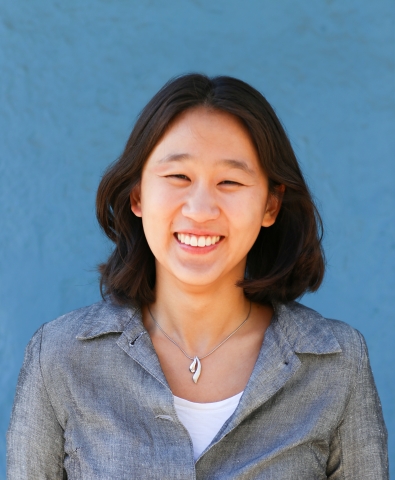“If you can’t smell anything, that’s the best” is a saying that circulates the atmospheric science community. Coty Jen, ARCS Minnesota Chapter Scholar Alumni and current professor at Carnegie Mellon University, joined this community once she chose to use her degrees in chemical and mechanical engineering to study atmospheric particles. What started as an original goal of understanding the health impacts of smoke and using that research to inform forest fighters and rangers better, transformed into studying the climate implications smoke has on the environment.
 Jen’s original study tried to discover the immune responses after tissue cultures were exposed to different types of smoke. For example, was smoke from burning trash worse than smoke from wood? The reality was all smoke killed their tissue cultures. “So, the answer is probably yes, some smoke is worse for you. But for the types of laboratory studies we were looking at, we could not differentiate between them being all bad,” Jen says.
Jen’s original study tried to discover the immune responses after tissue cultures were exposed to different types of smoke. For example, was smoke from burning trash worse than smoke from wood? The reality was all smoke killed their tissue cultures. “So, the answer is probably yes, some smoke is worse for you. But for the types of laboratory studies we were looking at, we could not differentiate between them being all bad,” Jen says.This led her research to turn to the climate implications of smoke. “Smoke has large climate effects because it goes from absorbing a lot of light to not absorbing light. We’re finding wildfire smoke is very long-lived in the atmosphere, but it will chemically transform as it moves downwind. And we’re trying to understand what smoke will do when it lands somewhere,” explains Jen.
This discovery has Jen asking more questions. How does smoke interact with the bigger climate picture and impact various land and ocean ecological systems? How will those ecological systems then feed back into the atmosphere and impact the climate?
These questions had their answers in the ocean, specifically the increase of algae blooms in the ocean. “We’re studying phytoplankton. We know forest fires are becoming more prevalent, but we don’t know how this vaporization of nutrients moves across the globe deposits in the middle of the ocean, often in places with low biological productivity. And now it’s creating the perfect conditions for algae to bloom, which will then impact the climate in a whole different way,” she explains.
This process is called a feedback loop. Forest fires create smoke, which carries nutrients across the globe. These nutrients land in oceans and change their biology, which then initiates new growth in that area. This feedback loop that Jen is studying isn’t accounted for in models. “It’s fascinating because we know how incredibly complicated the planet is and that it’s warming, but we understand so poorly all the consequences of it. It’s extremely likely that we will warm faster than we anticipate because of all these feedback loops that we’re not putting into our models,” Jen shares.
“When I think of ARCS, I think society still cares what STEM does for the next generation,” she said. Being involved in the ARCS Foundation, according to Jen, has helped her gain new friends and broaden her network in science. “As a professor, it’s easy to fall into a bubble where all your friends are other professors you know or within the academic sphere. ARCS has kept me in the real world. I’ve been fortunate enough to have many scholarships, but ARCS was the only scholarship I have developed lifeling friends through. It’s a great group of people.”

